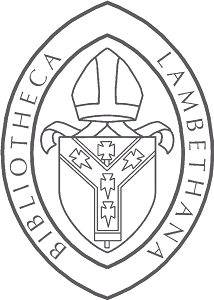A guest post by Steven S. Maughan, Professor and Chair. Department of History, The College of Idaho.
My current research focuses on the impact of nineteenth-century Anglo-Catholicism on British Christian foreign missions and the British empire. Anglo-Catholics formed a party within the Church of England that from the 1840s advocated a revival of medieval and Catholic styles of religiosity and from the 1860s also supported foreign missions, most notably the Universities’ Mission to Central Africa and Melanesian Mission, but also missions in dozens of overseas dioceses. Their missionary program included reliance on newly formed monastic religious communities for women and men—sisterhoods and brotherhoods. The pioneering use of independent women in the mission field and reliance on university-educated missionaries acted as formative influences on a series of new initiatives that transformed late-Victorian Protestant missions. Among the most important of these new religious communities was the Society of St John the Evangelist (known more popularly as the Cowley Fathers) inaugurated in 1866 by Father R. M. Benson which ultimately established missionary houses in South Africa, India, Japan, and Canada. The SSJE archive, including the early correspondence of Father Benson, has recently been deposited at Lambeth Palace Library where it is being catalogued (see earlier post –Society of Saint John the Evangelist records go ‘live’), and with which, by the generous accommodation of the Library staff, I was able to work over the past few months.
Anglican religious communities, which evoked fierce opposition from evangelicals for their alleged “Popish” excesses, were extremely controversial, and the missions associated with them challenged dominant evangelical emphases on individual conversion and westernization, instead advocating communal religious institutions and syncretized indigenization leading to independent “native” community-based churches. The SSJE was particularly important in this process: first, because it inaugurated the use of English Anglican brothers as missionaries abroad; second, because overseas the Cowley Fathers provided legitimization, support and collaboration with several Anglican sisterhoods, including the Wantage Sisters, which sent even larger numbers of Anglican religious abroad.
This project has developed out of my recent scholarly work—with its focus on Anglicanism, imperial history and British religious cultures—which will culminate in the publication of a more general study of the foreign missions of the Church of England, coming out in February 2014, entitled Mighty England Do Good: Culture, Faith, Empire and World in the Missionary Projects of the Church of England, 1850-1915 (Eerdmans). It is from this more comprehensive foundation that the current project emerges; while I deal in outline in the forthcoming book with the impact of high church Anglicans and Anglo-Catholics on Christian missionary methods and initiatives, it is treated as but one aspect of Anglican missionary religion within the larger context of evangelical missions and their relationship to empire and missionary internationalism.
